I agree with the consumption of alcoholic beverages as long as it is done in a responsible way / Estoy de acuerdo con el consumo de bebidas alcoholicas siempre que se haga de forma responsable. [English / Spanish]
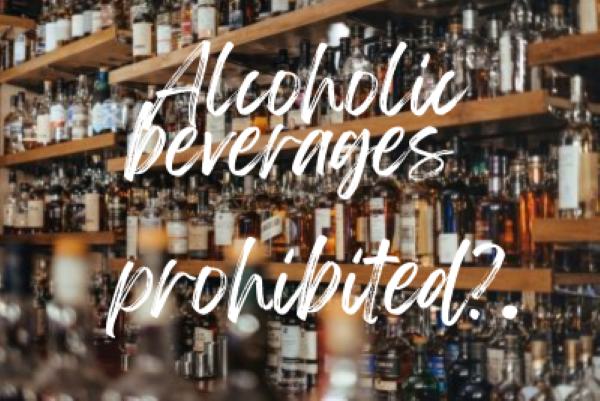
Alcoholic beverages and hard drugs are the subject of controversy and debate in society. Both have harmful effects on people's health, but the question remains whether one is a lesser evil than the other.
It is important to understand that both alcohol and hard drugs can have serious negative effects on people's physical and mental health. Alcohol, for example, is one of the most widely consumed substances worldwide and its abuse can lead to health problems such as liver cirrhosis, mental disorders and car accidents.

Collage elaborated by me using Paint 3D program, these are the fonts used:
Photo by Tim Mossholder in Unsplash, Photo by Mihály Köles in Unsplash, Image by Tumisu from Pixabay, Photo by Maxim Hopman in Unsplash.
Hard drugs such as cocaine, heroin and methamphetamine have even more devastating effects, including severe addiction, overdose and irreversible brain damage.
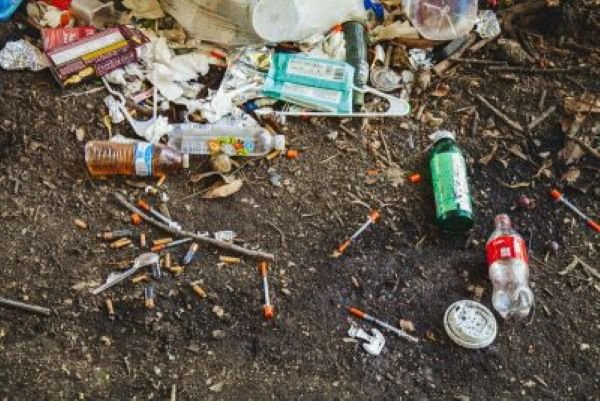
Photo by Jonathan Gonzalez in Unsplash
Despite these differences in harmful effects, some argue that alcohol is a lesser evil than hard drugs due to its widespread use and social acceptance. Alcohol has been consumed for centuries in various cultures and its production and distribution is legalized in most countries. On the other hand, hard drugs are illegal in most places and their use is often associated with crime and social marginalization.

Photo by Omar Lopez in Unsplash
However, this perception that alcohol is a lesser evil than hard drugs can be questioned since alcohol is one of the leading causes of preventable disease and death in the world, suggesting that its harmful effects should not be underestimated. Therefore, it is important to consider whether the legalization and widespread availability of alcohol are justified in light of its impact on public health.
Alcohol prohibition could reduce the health problems associated with excessive alcohol consumption, such as liver cirrhosis and automobile accidents. In addition, it could help combat the problem of addiction in society and reduce the incidence of alcohol-related domestic violence and crime.
Prohibiting this substance could have negative consequences for society. Prohibitions can lead to the emergence of a black market and an increase in crime:
During the Prohibition era in the United States in the 1920s, gangsters became notorious for controlling the illegal alcohol trade, known as bootlegging. This led to an era of violence and corruption that left an indelible mark on American history.
The marketing of alcohol illegally provided the gangsters with a lucrative source of income and gave them an aura of power and control over their territories. During Prohibition, illegal alcohol became an extremely valuable commodity, leading to fierce competition between criminal groups to control its distribution.

Gangsters became iconic figures of the era, with leaders such as Al Capone emerging as true titans of organized crime. These individuals not only controlled the illegal alcohol market, but also engaged in activities such as extortion, illegal gambling and murder to maintain their power and protect their interests.
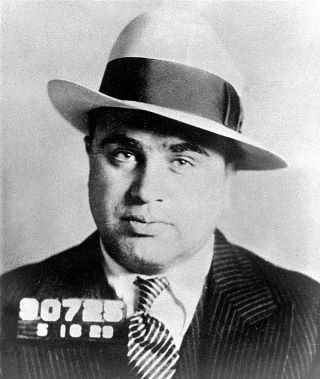
The relationship between alcohol and gangsters also had devastating consequences for society as a whole. The rampant violence caused by the competition between the various criminal groups left a trail of death and destruction in its wake. The corruption of law enforcement and political power allowed these criminals to operate with impunity for years, sowing chaos and fear in the streets of America's cities. Prohibition was lifted in 1933, ending a dark era in this country's history.
It is important to recognize that alcohol is a substance that can have negative effects on people's health and well-being if consumed in excess or irresponsibly. Therefore, it is essential to adopt measures to ensure responsible consumption and avoid risky situations.
One of the most important measures to consume alcohol responsibly is to set clear limits and respect them. This means knowing and respecting the recommended consumption limits, as well as knowing when it is time to stop and not to overdo it. It is important to remember that the amount of alcohol a person can safely consume varies according to factors such as weight, gender, tolerance and general health.
It is essential to avoid drinking alcohol in risky situations, such as when driving a vehicle or engaging in hazardous activities. Alcohol can affect reaction capacity, judgment, and motor coordination, which significantly increases the risk of accidents and injuries. Plan ahead and take precautions to avoid consuming alcohol in situations that may compromise personal safety and the safety of others.
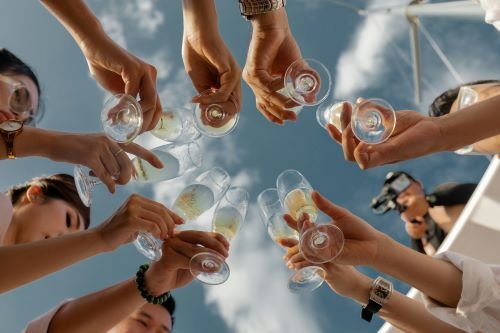
Photo by Quan Nguyen in Unsplash
Another important measure to consume alcohol responsibly is to drink slowly and accompany each drink with water or other non-alcoholic beverages. This reduces the risk of intoxication and allows the body to metabolize alcohol more effectively.
Furthermore, prohibiting alcohol could deprive people of their individual freedom to consume the substance responsibly. Therefore, it is crucial to carefully consider the possible side effects of such a drastic measure before implementing it.
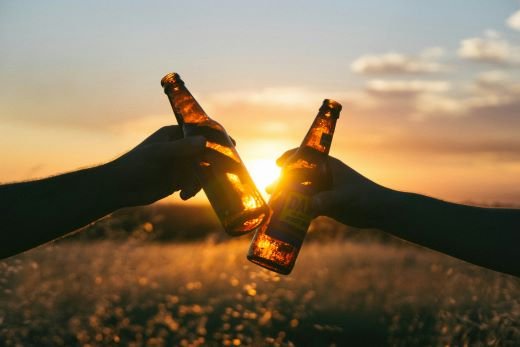
Photo by Wil Stewart in Unsplash
In conclusion, the harmful effects of alcoholic beverages are different from the harmful effects of hard drugs, but both have a significant impact on people's health and well-being. The question of whether one is a lesser evil than the other is complex and requires careful analysis of the social, cultural and public health factors involved. I would not prohibit alcoholic beverages, but I support their safe and moderate consumption. To achieve this, it is important to establish clear limits, avoid risky situations, drink slowly and accompany each drink with water or other non-alcoholic beverages. By taking these measures, you can enjoy alcohol responsibly and minimize risks to your health and well-being.
This is my first participation this week in the initiative proposed in the Hive Learners community, the topic gives a lot to comment on and discuss:
No More Alcohol: Are the damaging effects of alcoholic drinks any different from the damaging effects of hard drugs? Is one a lesser evil than the other? If you had the power, make alcoholic drinks a banned commodity just like drugs. Do you think it'll make the society any better? Please let us know.
Thank you for reading my publication, a big greeting to all and my best wishes at the beginning of the week.
The first image was modified with the graphic design program Canva, this being the original source: Photo by Adam Wilson in Unsplash.
The separator is free to use and has been provided by @onexel, Link here.

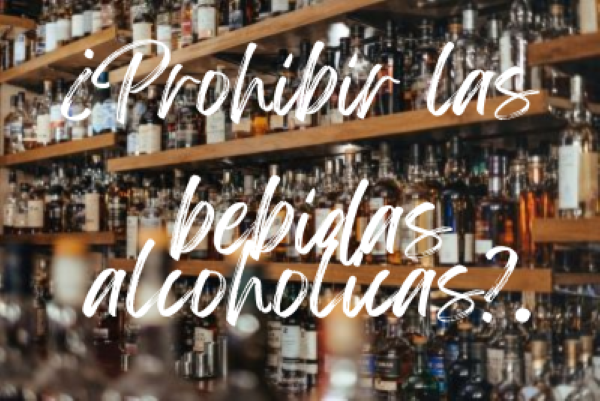
Las bebidas alcohólicas y las drogas duras son objeto de controversia y debate en la sociedad. Ambos tienen efectos nocivos en la salud de las personas, pero la pregunta sigue siendo si uno es un mal menor que el otro.
Es importante comprender que tanto el alcohol como las drogas duras pueden tener efectos negativos graves en la salud física y mental de las personas. El alcohol, por ejemplo, es una de las sustancias más consumidas en todo el mundo y su abuso puede llevar a problemas de salud como la cirrosis hepática, trastornos mentales y accidentes automovilísticos.

Collage elaborado por mi utilizando el programa Paint 3D, estas son las fuentes utilizadas:
Foto de Tim Mossholder en Unsplash, Foto de Mihály Köles en Unsplash, Image by Tumisu from Pixabay, Foto de Maxim Hopman en Unsplash.
Las drogas duras como la cocaína, la heroína y la metanfetamina tienen efectos aún más devastadores, incluyendo adicción severa, sobredosis y daño cerebral irreversible.

Foto de Jonathan Gonzalez en Unsplash
A pesar de estas diferencias en los efectos nocivos, algunos argumentan que el alcohol es un mal menor que las drogas duras debido a su uso generalizado y aceptación social. El alcohol se ha consumido durante siglos en diversas culturas y su producción y distribución están legalizadas en la mayoría de los países. Por otro lado, las drogas duras son ilegales en la mayoría de los lugares y su uso suele estar asociado con el crimen y la marginalización social.

Foto de Omar Lopez en Unsplash
Sin embargo, esta percepción de que el alcohol es un mal menor que las drogas duras puede ser cuestionada ya que el alcohol es una de las principales causas de enfermedades y muertes evitables en el mundo, lo que sugiere que sus efectos nocivos no deben subestimarse. Por lo tanto, es importante considerar si la legalización y disponibilidad generalizada del alcohol son justificadas a la luz de su impacto en la salud pública.
La prohibición del alcohol podría reducir los problemas de salud asociados con su consumo excesivo, como la cirrosis hepática y los accidentes automovilísticos. Además, podría ayudar a combatir el problema de la adicción en la sociedad y reducir la incidencia de la violencia doméstica y el crimen relacionados con el alcohol.
Prohibir esta sustancia podría tener consecuencias negativas para la sociedad. Las prohibiciones pueden llevar a la aparición de un mercado negro y a un aumento de la criminalidad:
En la época de la Prohibición en Estados Unidos, en la década de 1920, los gangsters se hicieron famosos por controlar el tráfico ilegal de alcohol, conocido como el contrabando de licor. Esta situación dio lugar a una era de violencia y corrupción que dejó una marca indeleble en la historia de Estados Unidos.
La comercialización del alcohol de forma ilegal les proporcionaba a los gansters una fuente de ingresos lucrativa y les daba un aura de poder y control sobre sus territorios. Durante la Prohibición, el alcohol ilegal se convirtió en una mercancía extremadamente valiosa, lo que llevó a una competencia feroz entre los distintos grupos criminales por controlar su distribución.

Los gangsters se convirtieron en figuras icónicas de la época, con líderes como Al Capone emergiendo como verdaderos titanes del crimen organizado. Estos individuos no solo controlaban el mercado de alcohol ilegal, sino que también se involucraban en actividades como la extorsión, el juego ilegal y el asesinato para mantener su poder y proteger sus intereses.

La relación entre el alcohol y los gangsters también tuvo consecuencias devastadoras para la sociedad en su conjunto. La violencia desenfrenada causada por la competencia entre los distintos grupos criminales dejó un rastro de muerte y destrucción a su paso. La corrupción de las fuerzas del orden y el poder político permitió que estos criminales operaran impunemente durante años, sembrando el caos y el miedo en las calles de las ciudades de Estados Unidos. La prohibición fue levantada en 1933, poniendo fin a una era oscura de la historia de este país.
Es importante reconocer que el alcohol es una sustancia que puede tener efectos negativos en la salud y el bienestar de las personas si se consume en exceso o de manera irresponsable. Por lo tanto, es fundamental adoptar medidas para garantizar un consumo responsable y evitar situaciones de riesgo.
Una de las medidas más importantes para consumir alcohol de manera responsable es establecer límites claros y respetarlos. Esto significa conocer y respetar los límites de consumo recomendados, así como saber cuándo es el momento de parar y no excederse. Es importante recordar que la cantidad de alcohol que una persona puede consumir de forma segura varía según factores como el peso, el sexo, la tolerancia y la salud en general.
Es fundamental evitar el consumo de alcohol en situaciones de riesgo, como cuando se maneja un vehículo o se realiza actividades peligrosas. El alcohol puede afectar la capacidad de reacción, el juicio y la coordinación motora, lo que aumenta significativamente el riesgo de accidentes y lesiones. Hay que planificar con anticipación y tomar las precauciones necesarias para evitar consumir alcohol en situaciones que puedan comprometer la seguridad personal y la de los demás.

Foto de Quan Nguyen en Unsplash
Otra medida importante para consumir alcohol de manera responsable es beber lentamente y acompañar cada bebida con agua u otras bebidas no alcohólicas. De esta manera, se reduce el riesgo de intoxicación y se permite al cuerpo metabolizar el alcohol de manera más efectiva.
Además, la prohibición del alcohol podría privar a las personas de su libertad individual de consumir la sustancia de forma responsable. Por lo tanto, es crucial considerar cuidadosamente los posibles efectos secundarios de una medida tan drástica antes de implementarla.

Foto de Wil Stewart en Unsplash
En conclusión, los efectos nocivos de las bebidas alcohólicas son diferentes de los efectos nocivos de las drogas duras, pero ambos tienen un impacto significativo en la salud y el bienestar de las personas. La pregunta de si uno es un mal menor que el otro es compleja y requiere un análisis cuidadoso de los factores sociales, culturales y de salud pública involucrados. Yo no prohibiría las bebidas alcohólicas, pero apoyo su consumo de forma segura y moderada. Para lograr esto, es importante establecer límites claros, evitar situaciones de riesgo, beber lentamente y acompañar cada bebida con agua u otras bebidas no alcohólicas. Al adoptar estas medidas, se puede disfrutar del alcohol de forma responsable y minimizar los riesgos para la salud y el bienestar.
Esta es mi primera participación en la semana en la iniciativa propuesta en la comunidad Hive Learners, el tema da mucho para opinar y discutir:
No más alcohol: ¿Son los efectos dañinos de las bebidas alcohólicas diferentes de los efectos dañinos de las drogas duras? ¿Es uno un mal menor que el otro? Si tuvieras el poder, haz de las bebidas alcohólicas un producto prohibido, al igual que las drogas. ¿Crees que mejorará la sociedad? Por favor déjanos saber.
Gracias por pasar a leer mi publicación, un gran saludo a todos y mis mejores deseos en este inicio de semana.
La primera imagen fue modificada con el programa de diseño gráfico Canva, siendo esta la fuente original: Foto de Adam Wilson en Unsplash.
El separador es de uso gratuito y ha sido proporcionado por @onexel, Enlace aquí.

Yeehaw, this here blog post sure covers some ground on the debate 'bout alcohol and hard drugs! Remember, moderation is key to enjoying a smooth ride with alcohol, partner!
We should avoid excesses with alcohol and enjoy consciously. Excessive alcohol can cause chronic diseases and problems such as high blood pressure, heart disease, stroke, liver disease and digestive problems.
The problem of alcohol and drugs is transversal in our society, we have to face this problem, in my opinion, by increasing awareness, especially among younger people.
Yes, the key is to prevent and educate younger people, if they decide to consume alcohol, they should do it responsibly without excess and face the consequences if they harm other people or themselves.
The comparison between alcohol and hard drugs is nuanced, highlighting that while both have harmful effects, the perception of alcohol as a lesser evil is not necessarily accurate considering its significant impact on public health. Your mention of the Prohibition era in the United States effectively illustrates the potential consequences of banning alcohol, such as the rise of illegal markets and organized crime.
Precisely, to avoid the occurrence of events similar to what happened in the United States with the Prohibition Law, which had a negative impact on that society, is why I do not think it is convenient to ban alcoholic beverages. What I do believe we can do is to make the population aware of the consequences of alcohol consumption in an irresponsible and inappropriate way, to make them aware of the damage that alcoholic beverages can cause to the human body and even to the social environment. If the person decides to consume alcohol, he/she should do it at his/her own risk but in a responsible way, at his/her own pace and stop until he/she reaches a limit in which he/she does not harm him/herself or other people.
Setting individual limit is key, but is this limit safe for the body as each person is different from another?
Thanks for sharing with us.
I think that everyone is responsible for himself, the limit in the drink of each of us is something complicated to measure because everyone has a different tolerance to drinks and everything will depend on how your body behaves. If we check on the internet there are established limits, but I don't think this information is very reliable.
I do not think that alcohol is a lesser evil to hard drugs, both are dangerous when we don't mind the way we take them, people really get into a mess with too much taking of alcohol, and it would still be the same mess, someone who took hard drugs can get.
I respect your opinion. In fact, getting alcohol is much easier than getting drugs and both substances are harmful. What I am saying is that prohibiting alcohol would run the risk of increasing other harmful and violent activities for citizens, such as illicit commercialization, illegal and poor quality alcohol manufacturing, and violence by criminals who want to be distributors of the product. There will always be alcohol consumption and therefore it is better to make people aware of the need to drink in moderation. Of course, the excess of alcohol is as harmful or more harmful to health as drugs and brings very bad consequences for the individual and for society.
Yes, that's true, you are right about it.
Alcohol is the legal drug that killed more people than all the illegal drugs combined.